Last Updated on July 25, 2024 by admin
Buy Hepcvel Tablet Price Only @8499
Hepcvel Tablet overview
SALT COMPOSITION:
Sofosbuvir (400mg) + Velpatasvir (100mg)
PRODUCT INTRODUCTION
Hepcvel Tablet is a combination of two antiviral medicines. This prescription medicine is used in the treatment of chronic hepatitis C virus (HCV) infection. It fights against the viruses to resolve the infection.
Hepcvel should be taken in the prescribed dose and duration. It can be taken with or without food, but take it at the same time daily. It is advised not to consume more than the recommended dose. It is important to inform your doctor if you have any health conditions such as liver or kidney disease. It is harmful to consume alcohol along with this medicine, so it is advised to limit or avoid alcohol. The course of the medicine should be completed for better results.
The common side effects of this medicine are tiredness and headache. You should drink plenty of fluid and eat a healthy diet to prevent or overcome the side effects. Before taking the medicine, inform your doctor if you are taking any other medicines or supplements.
USES OF HEPCVEL
The primary use of the Sofosbuvir (400mg) Velpatasvir (100mg) tablet (Hepcvel) is to treat chronic hepatitis C virus (HCV) infection in adults. It is effective against all genotypes of the hepatitis C virus and can be used in patients with or without cirrhosis.
This medication is often prescribed as part of a combination therapy regimen, which may include other antiviral drugs or medications to support liver function. The goal of treatment is to achieve sustained virologic response (SVR), which means that the virus is no longer detectable in the blood after treatment completion.
BENEFITS OF HEPCVEL
- In Treatment of Chronic hepatitis C virus (HCV) infection
Hepatitis C is a liver infection caused by the hepatitis C virus (HCV). When the infection moves into a long-lasting stage, it is called chronic hepatitis C virus infection. Hepcvel helps reduce the number of hepatitis C virus by preventing it from spreading in your body. This helps control the infection and helps you recover faster. It is important that you take this medicine as prescribed, following the dosage recommended by your doctor.
Hepcvel Medicinal Benefits
The Sofosbuvir (400mg) Velpatasvir (100mg) tablet (Hepcvel Tablet) offers several medicinal benefits for patients with chronic hepatitis C virus infection:
- High cure rates: Clinical studies have shown that this combination therapy can achieve high cure rates, with more than 95% of patients achieving sustained virologic response.
- Improved quality of life: Successful treatment of hepatitis C can lead to significant improvements in liver function and overall health, reducing the risk of complications such as liver cirrhosis, liver cancer, and liver failure.
- Convenience: The Sofosbuvir (400mg) Velpatasvir (100mg) tablet (Hepcvel Tablet) is taken orally once a day, making it a convenient treatment option for patients.
SIDE EFFECTS OF HEPCVEL
Most side effects do not require any medical attention and disappear as your body adjusts to the medicine. Consult your doctor if they persist or if you’re worried about them
Common side effects of Hepcvel
- Headache
- Tiredness
HOW TO USE HEPCVEL
It is essential to follow the directions provided by your healthcare provider or the instructions on the prescription label when taking the Sofosbuvir (400mg) Velpatasvir (100mg) tablet (Hepcvel Tablet). The usual recommended dosage is one tablet taken orally once daily with or without food.
Do not crush, chew, or break the tablet. Swallow it whole with a glass of water. If you have difficulty swallowing tablets, consult your healthcare provider for alternative options.
Continue taking the medication for the prescribed duration, even if you start feeling better before completing the course. Stopping the medication prematurely may result in incomplete treatment and reduced effectiveness.
Storage Hepcvel
Store the Sofosbuvir (400mg) Velpatasvir (100mg) tablet (Hepcvel Tablet) at room temperature, away from direct sunlight and moisture. Keep it out of reach of children and pets. Do not use the medication after the expiration date printed on the packaging.
HOW HEPCVEL WORKS
Hepcvel Tablet is a combination of two antiviral medicines: Sofosbuvir and Velpatasvir. They work by lowering the amount of hepatitis C virus in the body and removing the virus from the blood over a period of time.
Hepcvel Drug Warnings
Before starting treatment with the Sofosbuvir (400mg) Velpatasvir (100mg) tablet (Hepcvel Tablet), inform your healthcare provider about any pre-existing medical conditions, allergies, or medications you are currently taking. This information will help your healthcare provider determine if this medication is suitable for you and if any adjustments need to be made to your treatment plan.
It is important to note that this medication may not be suitable for everyone. Your healthcare provider will evaluate the potential risks and benefits before prescribing the Sofosbuvir (400mg) Velpatasvir (100mg) tablet (Hepcvel Tablet).
Hepcvel Drug Interactions
The Sofosbuvir (400mg) Velpatasvir (100mg) tablet (Hepcvel Tablet) may interact with certain medications, including:
- Rifampin
- Carbamazepine
- Phenytoin
- St. John’s Wort
These interactions can affect the effectiveness of the medication or increase the risk of side effects. Inform your healthcare provider about all the medications you are currently taking to avoid any potential drug interactions.
Hepcvel-Drug Interactions Checker List: Safety Advice
To ensure your safety and the effectiveness of the Sofosbuvir (400mg) Velpatasvir (100mg) tablet (Hepcvel Tablet), consider the following safety advice:
- Follow the prescribed dosage and duration of treatment.
- Inform your healthcare provider about any pre-existing medical conditions.
- Disclose all medications, including over-the-counter drugs and supplements, to your healthcare provider.
- Report any side effects or concerns to your healthcare provider promptly.
- Attend all follow-up appointments as scheduled.
SAFETY ADVICE
warnings
![]() Alcohol
Alcohol
CONSULT YOUR DOCTOR
It is not known whether it is safe to consume alcohol with Hepcvel Tablet. Please consult your doctor.
warnings
![]() Pregnancy
Pregnancy
SAFE IF PRESCRIBED
Hepcvel Tablet is generally considered safe to use during pregnancy. Animal studies have shown low or no adverse effects to the developing baby; however, there are limited human studies.
warnings
![]() Breast feeding
Breast feeding
SAFE IF PRESCRIBED
Hepcvel Tablet is probably safe to use during breastfeeding. Limited human data suggests that the drug does not represent any significant risk to the baby.
warnings
![]() Driving
Driving
UNSAFE
Hepcvel Tablet may cause side effects which could affect your ability to drive.
Hepcvel Tablet, when taken together with other medicines for the treatment of hepatitis c infection, may produce dizziness, blurred vision and this may affect your ability to drive.
warnings
![]() Kidney
Kidney
CAUTION
Hepcvel Tablet should be used with caution in patients with severe kidney disease. Dose adjustment of Hepcvel Tablet may be needed. Please consult your doctor.
Limited information is available on the use of Hepcvel Tablet in these patients. No dose adjustment is recommended in patients with mild to moderate kidney disease.
warnings
![]() Liver
Liver
SAFE IF PRESCRIBED
Hepcvel Tablet is safe to use in patients with liver disease. No dose adjustment of Hepcvel Tablet is recommended.
However, inform your doctor if you have any kidney disease as regular monitoring of liver function tests may be advised in some patients while taking this medicine.
![]() CHILDREN CAUTION
CHILDREN CAUTION
UNSAFE
Hepcvel Tablet is not recommended for use in children and adolescents below 18 years.
 Habit Forming
Habit Forming
The Sofosbuvir (400mg) Velpatasvir (100mg) tablet (Hepcvel Tablet) is not habit-forming. It is a prescription medication intended for short-term use as part of a treatment regimen for chronic hepatitis C virus infection.
![]() expert advice
expert advice
WHAT IF YOU FORGET TO TAKE HEPCVEL
If you miss a dose of Hepcvel Tablet, take it as soon as possible. However, if it is almost time for your next dose, skip the missed dose and go back to your regular schedule. Do not double the dose.
- Hepcvel Tablet is used for the treatment of chronic hepatitis C virus (HCV) infection.
- Take it with food, preferably at the same time everyday.
- You will usually need to take this medicine every day for either 12 or 24 weeks.
- Skipping doses increases the risk of treatment failure. Make sure that you take all your doses at the correct time.
- It may cause fatigue, dizziness, and blurred vision. Don’t drive or do anything requiring concentration until you know how it affects you.
- Hepcvel Tablet may cause headaches. Drink plenty of water and take a suitable painkiller. Inform your doctor if it does not go away.
- Your doctor may monitor your liver function and the amount of hepatitis C virus in your body regularly.
- Do not stop taking this medicine without your doctor’s advice.
FAQs ABOUT HEPCVEL
Q: 1 What is HEPCVEL TABLET?
A: HEPCVEL TABLET is an antiviral medicine used to treat Hepatitis C infection.
Q: 2 Is HEPCVEL safe?
A: HEPCVEL TABLET is safe at doses prescribed by the physician.
Q: 3 How does HEPCVEL work in our body?
A: HEPCVEL TABLET acts by blocking the actions of certain viral enzymes (HIV-reverse transcriptase) that is required for the viral cell to grow and multiply. This reduces multiplication of viral cells and prevents the spread of infection.
Q: 4 Can I stop taking HEPCVEL if I feel unwell?
A: No. Do not stop taking HEPCVEL without consulting your doctor. Take HEPCVEL TABLET regularly, because if you miss a dose of HEPCVEL or take it at irregular intervals, you may experience some unpleasant reactions. If you wish to discontinue HEPCVEL TABLET due to unpleasant symptoms, consult your doctor for advice.
Q: 5 What to do if I forget to take a dose of HEPCVEL?
A: If you miss a dose of HEPCVEL TABLET take it as soon as you remember. However, if it is time to take the next dose, skip the missed dose and take the next one at regular time. Do not take a double dose of HEPCVEL to compensate the missed dose.
Q: 6 Can HEPCVEL cure Hepatitis C completely?
A: Yes. HEPCVEL TABLET acts by reducing the number of viral cells within the body. Eventually, it can eliminate the virus from the body and can cure hepatitis C completely.
Q: 7 What are the precautions to be followed while taking HEPCVEL?
A: Before taking HEPCVEL inform your doctor if you have diabetes, kidney problems or any other liver problems apart from hepatitis C infection (such as liver transplant or hepatitis B infection). Do not take HEPCVEL TABLET without consulting your doctor if you are pregnant or breastfeeding. Regularly visit your doctor and take all the blood tests recommended for you. Do not stop taking HEPCVEL without consulting your doctor.
Q: 8 Can HEPCVEL be used in children?
A: HEPCVEL TABLET is not recommended for use in children aged below 3 years. Children aged above 3 years must consult their doctor before taking this medicine. Therefore, consult your doctor for advice.
Q: 9 How to take HEPCVEL?
A: Take HEPCVEL TABLET as directed by your physician. Swallow the medicine with a glass of water. Do not crush or chew the medicine. HEPCVEL can be taken with or without meals. Continue to take HEPCVEL regularly as advised by your physician for maximum benefits.
Q: 10 Can Hepcvel cure hepatitis C in individuals with advanced liver disease or cirrhosis?
A: Hepcvel tablet has shown efficacy in treating hepatitis C in individuals with advanced liver disease or compensated cirrhosis. However, the response rate may vary, and close monitoring of liver function is important during and after treatment.
Q: 11 Is it necessary to undergo regular blood tests while on Hepcvel treatment?
A: Yes, regular blood tests are typically conducted during Hepcvel tablet treatment to monitor liver function, viral load, and treatment response. These tests help assess the effectiveness of the medication and ensure patient safety.
Q: 12 Can Hepcvel be used in patients with kidney disease?
A: Hepcvel tablet can be used in patients with mild to moderate kidney impairment without dose adjustment. However, patients with severe renal impairment or end-stage renal disease may require dose adjustments or alternative treatment options. It is important to discuss your kidney function with your healthcare provider to determine the most appropriate treatment plan.
Q: 13 Can Hepcvel be used in patients with HIV co-infection?
A: Hepcvel tablet is effective and safe in individuals with both hepatitis C and HIV co-infection. However, it is important to coordinate treatment with both infectious disease and HIV specialists to ensure proper management of both conditions.
Q: 14 Can Hepcvel cause weight gain or loss?
A: Weight gain or loss is not commonly reported as a side effect of Hepcvel tablet. However, individual responses to medication can vary. If you experience any unexplained or concerning changes in weight during treatment, it is recommended to consult your healthcare provider for further evaluation.
Q: 15 Can Hepcvel be used in patients with a history of liver transplantation?
A: Hepcvel tablet can be used in patients with a history of liver transplantation who have recurrent hepatitis C. However, individual patient factors and the specific post-transplantation period must be considered. Consultation with a transplant hepatologist or specialist is recommended to determine the most appropriate treatment approach.
Q: 16 Can Hepcvel cause any serious side effects?
A: While Hepcvel tablet is generally well-tolerated, like any medication, it can potentially cause side effects. Common side effects include headache, fatigue, nausea, and insomnia. Serious side effects are rare but can include severe allergic reactions, changes in heart rate, and liver problems. It is important to discuss any concerns or potential side effects with your healthcare provider, who can provide further information and guidance based on your specific situation.
Q: 17 what is hepcvel tablet price in india?
A: Hepcvel tablet is available at net rate 8499 on HIVHUB.IN, which provides free shipping all over India and also gives cash on delivery, MRP of Hepcvel in the market is 17500.
Some More FAQ for Hepcvel Tablet:
1. What is Hepcvel used for?
A: Hepcvel tablet is used for the treatment of chronic hepatitis C virus (HCV) infection in adults.
2. When is the best time to take Hepcvel?
A: Hepcvel tablet is usually taken once daily with food. It is important to follow the instructions provided by your healthcare provider.
3. What are the long-term side effects of Hepcvel?
A: Long-term side effects of Hepcvel tablet may include fatigue, headache, nausea, and anemia. It is important to discuss any concerns with your healthcare provider.
4. Can you provide a review of Hepcvel?
A: Reviews of Hepcvel tablet have shown positive results in the treatment of HCV infection. However, individual experiences may vary, and it is important to consult with a healthcare professional.
5. What are the uses of Hepcvel?
A: Hepcvel tablet is used for the treatment of chronic hepatitis C virus (HCV) infection in adults.
6. Can Hepcvel be used in combination with other medications?
A: Hepcvel tablet is a combination of two antiviral medications, sofosbuvir and velpatasvir, and is used as a single therapy for treating HCV infection.
7. What is the recommended dosage for Hepcvel?
A: The recommended dosage of Hepcvel tablet is one tablet once daily, taken with food. It is important to follow the dosage instructions provided by your healthcare provider.
8. What is Hepcvel used for?
A: Hepcvel tablet is used for the treatment of chronic hepatitis C virus (HCV) infection in adults.
9. What is the company name of Hepcvel tablet?
A: Hepcvel tablet is manufactured by Cipla Limited.
REFERENCES:
- Harsh Mohan. Viral Hepatitis. The Liver, Biliary Tract and 592 Exocrine Pancreas. Textbook of Pathology. 6th Edition. Page – 605.
- Ajit Sood, Ajay Duseja, Mayank Kabrawala, Pradeep Amrose, Bhadadev Goswami, Abhijit Chowdhury, Shiv Kumar Sarin, Abraham Koshy, Robert H. Hyland, Sophia Lu, Gregory Camus, Luisa M. Stamm, Diana M. Brainard, G. Mani Subramanian, Madhura Prasad, Shobna Bhatia, Samir R. Shah, Dharmesh Kapoor, Shalimar and Vivek Saraswat. Sofosbuvir–velpatasvir single-tablet regimen administered for 12 weeks in a phase 3 study with minimal monitoring in India. NIH. National Library of Medicine. National Center for Biotechnology Information. PMC. PubMed Central. February 2019. [Accessed on 4th January 2023]. https://www.ncbi.nlm.nih.gov/pmc/articles/PMC6418070/
- Gilead Sciences Ltd. Epclusa 400 mg/100 mg film-coated tablets sofosbuvir/Velpatasvir. Electronic Medicines Compendium (EMC) [Revised in May 2022] [Accessed on 4th January 2023]. https://www.medicines.org.uk/emc/files/pil.3461.pdf
- Asegua Therapeutics LLC. SOFOSBUVIR AND VELPATASVIR- velpatasvir and sofosbuvir tablet, film coated. Dailymed.com. [Revised in May 2022]. [Accessed on 4th January 2023]. https://dailymed.nlm.nih.gov/dailymed/drugInfo.cfm?setid=d0c1a945-4440-4b5c-81aa-693ed3db597c

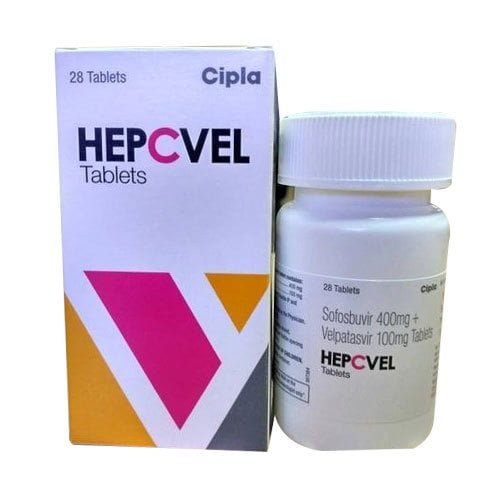

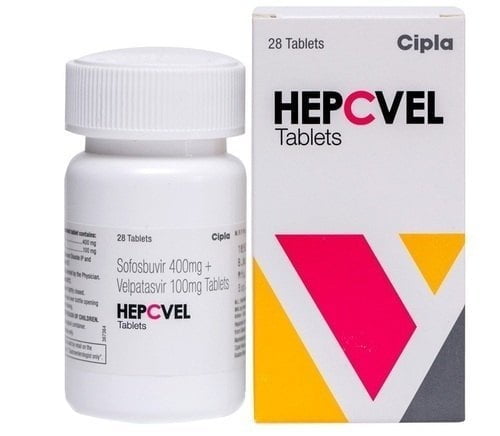
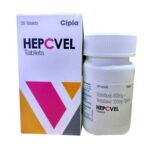
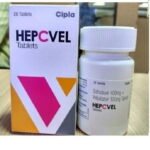
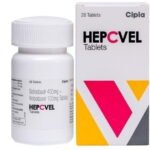

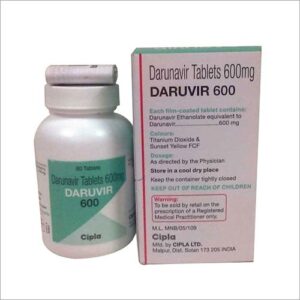

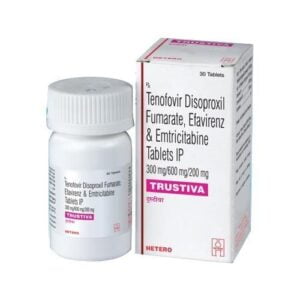
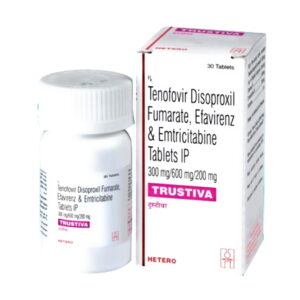
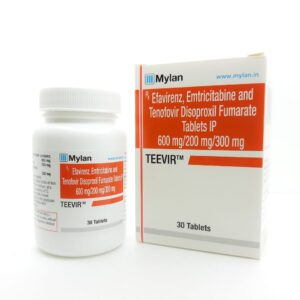
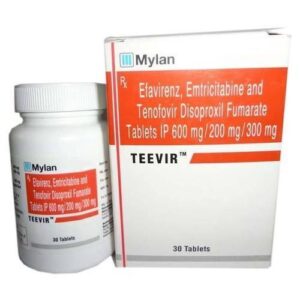
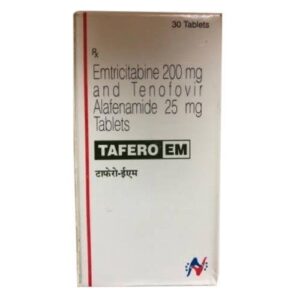
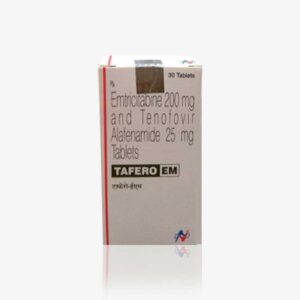
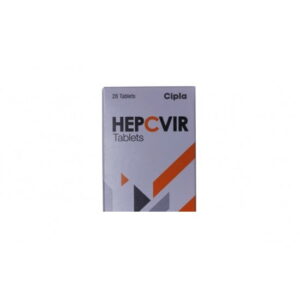
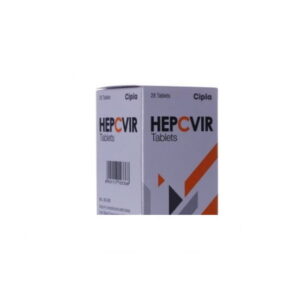

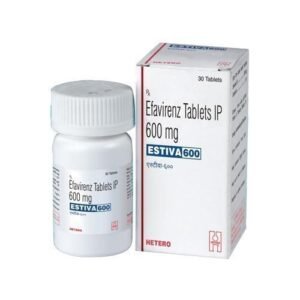
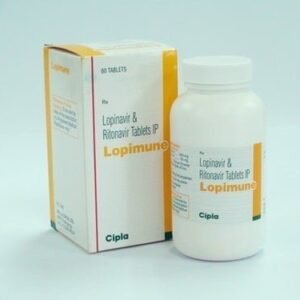
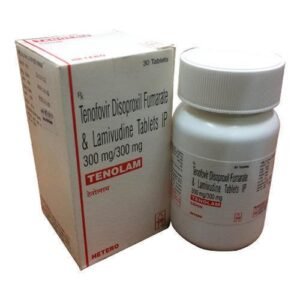

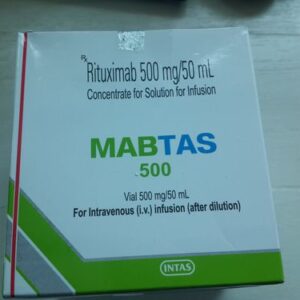
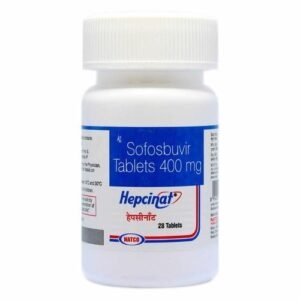
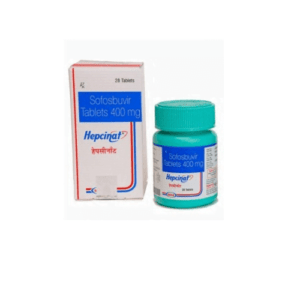

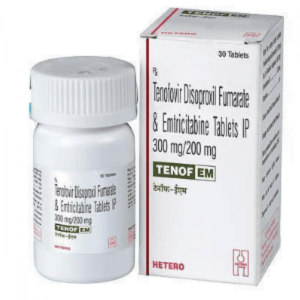
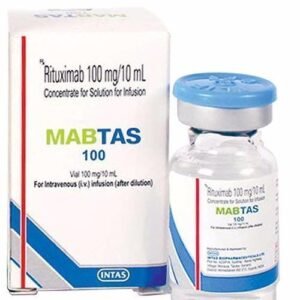
There are no reviews yet.